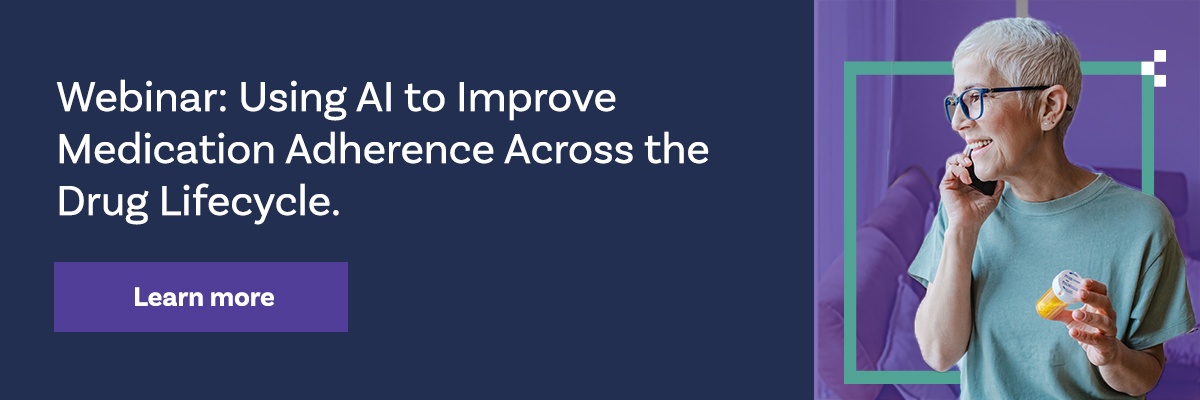Poor medication adherence can have significant consequences, ranging from worsening health conditions and comorbidities, to an increased risk of hospitalization and even mortality. However, well-designed patient support programs supplemented by smart data and technology have the potential to identify and overcome barriers to medication adherence. That’s why it’s no surprise they’ve become increasingly important for pharmacies, pharmaceutical companies, and payers.
A better understanding of what’s causing medication non-adherence—coupled with personalized, patient-centric interventions—can address common barriers, increase adherence, and improve health outcomes over time. Here are three ways patient support programs can improve medication adherence:

1. Identifying the Right Intervention Channel
A one-size-fits-all approach simply doesn’t work in healthcare. No two patients are exactly alike, which is why patient support programs must offer flexibility and be custom-tailored to individual preferences. Multichannel medication adherence interventions are proven to influence patient behavior. Today, there are a plethora of interaction channels that can be used to improve adherence, including phone, email, text messaging, patient portals, in-person or telehealth visits, and even personal apps.
Patient support programs can improve medication adherence by utilizing the channels that best suit each individual’s needs and are most likely to be effective. For example, some patients may be more responsive to higher-touch interventions with real interaction, such as seeing their provider for an in-person visit or speaking with them on the phone. On the other hand, tech-savvy patients may prefer to receive text message reminders.
2. Personalizing Messaging for Each Patient
The most successful patient support programs focus not only on the intervention channel itself, but also on the messaging. Different content is going to resonate with patients in different ways, which is why personalizing messaging for each patient is essential. For example, some patients may benefit from medication reminders, whereas others may be more likely to respond to offers, training, or educational resources.
A meta-analysis of text messaging for chronic disease adherence found that adherence programs used a variety of messaging strategies, including:
- Frequency and timing of messages
- Personalization for each patient
- Messages triggered by failure to act
- Different types of message content
- Length of written messages
3. Initiating Lasting Behavioral Changes
One-off solutions tend to be more transactional in nature, and although they can be effective at improving medication adherence in some patients, they certainly don’t work for everyone. Coordinated, data-driven patient support programs can influence lasting behavioral changes by honing in on the root cause of non-adherence for each specific individual. With a more holistic understanding of what’s causing poor adherence, pharmacies, payers, and pharmaceutical companies can design and deploy behavior-focused patient interventions that are more likely to have a long-term impact.
Improving Patient Adherence with Smart Data and Technology
Identifying the right intervention tactics, personalizing messaging for each patient, and initiating lasting behavioral changes can all go a long way when it comes to boosting adherence in high-risk individuals. The question is: How can you roll out and manage patient support programs in a way that’s more effective, while also delivering a consistently positive patient experience?
The best patient support programs (with the most impressive results) are supplemented by smart data and technology.
Advancements in artificial intelligence and predictive analytics are changing the game, enabling healthcare organizations to deliver more effective, personalized interventions that improve patient adherence and health outcomes. By leveraging modern, data-driven technology to inform the design of your patient support programs, you can personalize outreach by channel, content, and timing to deliver the most effective engagement possible.
